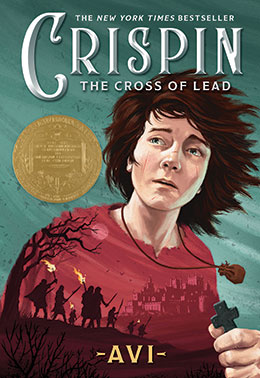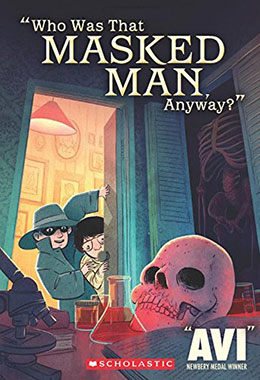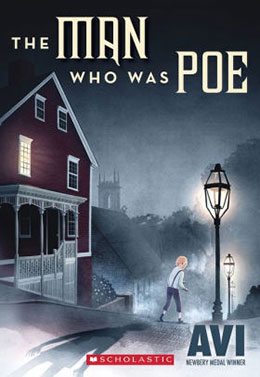
We go to a library or a bookstore — or maybe even a Little Free Library — and select a book. We take it home, settle into a favorite chair, and turn to the first page. It all seems straightforward and simple. It’s not.
[Note: As you read this, always keep in mind that I love what I do and have been doing it for more than fifty years.]
A number of years ago, a publisher suggested to me that it took about forty people to produce a book. Today, that could be more or less. I have no idea. Most of the book production is by people I never talk to, know, or meet. I do know — as a writer of books — that I am only one of many creators, and the time it takes to get the book into your hands is many months.
It takes me — sometimes longer, sometimes shorter — about a year to write the first draft of a novel. Along the way, there are endless fits, starts, stops, and, if you will, goes. I rewrite endlessly. My wife tells me she knows when my writing is going well by the rapidity of computer key clicks she hears. I’m not so sure. Sometimes, slow is good, too.
When I feel the book is whole (NOT done) I read the book to my wife, pen in hand. Aside from hearing lots of glitches, she — a fine critic — is not shy about telling me what is strong and weak. I pay attention and usually act accordingly.
Then, further along, I have a school where — for years — I have read my early draft books to an appropriately-aged class. I watch and listen to their responses, check with the teacher to get off-class time comments.
There are rewards. When I recently finished reading a new book to a fourth grade class, a boy came up to me and said, “Can I give you a hug?” When he did, he whispered, “Write a sequel.”
If that’s not a * review, I don’t know what is.
Then, I may share the book with friends and colleagues. My forthcoming book — The Road from Nowhere — which is set in an 1890’s Colorado mining camp, was shared with my writer friend Will Hobbs, who has written so wonderfully and knowledgeably about the American West. He knew, given the location of my story, where silver would most likely be smelted. I had it wrong. He set me right.
The book is sent to my agent, who reacts, and I act accordingly. Only then is the work submitted to an editor. Because I have published with so many publishers, this is not an automatic choice.
The book may be accepted by publisher A or rejected. If rejected, it goes on to publisher B. Or C …
Then, if the book is (tentatively) accepted, there is often a discussion as to the strengths and weaknesses of the story. “Would you be willing to rewrite this or that section?” “Are you open to strengthening the ending?”
Yes, no, until agreement is reached.
Simple? No. Not too long ago an editor accepted a book and told me a contract would be forthcoming. And would be. And would be. And would be. For six months. Except it wasn’t forthcoming. A new divisional chief said, “No.”
However, assuming real acceptance, a contract is drawn up. This, too, can take a while.
But since a commitment has been made, the editor and I begin to revise the book. It usually starts with the editor’s editorial letter, which outlines all those places (mostly) big, some small, that will strengthen the book.
I revise. The editor reads. Makes more suggestions. I revise. Back and forth. (I think Crispin’s opening pages were rewritten at least twenty times.)
This goes on until the editor (not me) says, “I think we’re done.” But, knowing we are never truly done, I keep revising — sometimes to the annoyance of my editor.
Then the book truly disappears.
But other things appear. Flap copy (the writing on the dust jacket) will show up for my response. I may rewrite that a bit. Even my bio on the dust jacket has been sent for my reaction and revision.
Also, I am sent sketches for the cover design and illustrations and asked for a reaction. I give it. They will almost always be revised. Usually that will be once or twice, but sometimes many times, as was the case of Gold Rush Girl.
Then, as happened yesterday, the first copy-edited version of the book comes through. I now see the book in print for the first time. (It was printed in, of all places, Italy!) A font was chosen. Its pagination has been set. The page layout was designed.
Many different people are involved in all of this. Not me.
Then the copyeditor weighs in. The copyeditor’s job can be basic — correcting spelling and grammar — but also bringing some (here and there) clarity or corrections to the text.
For Who Was That Masked Man Anyway? a question loomed. In the old radio show, did the Lone Ranger say “Hi yo Silver,” or “Hi ho Silver?”
In one book, the copy editor traced the escape movements of my protagonist and realized he was sailing in circles. A starboard tack was necessary somewhere!
In the current book, the copyeditor caught a lapse of a few hours in the narrative. It was important to the plot. I’ve reset the clock.
Reading the text in print is a different experience from reading a manuscript. I see that further changes are called for. I make them.
The book disappears again.
Revised book cover art pops up.
The book appears in its final form. Final? Once, when reading this “final” text I discovered three whole pages had been dropped.
At last — all of the above taking about a year — I am sent the actual book. All done. Except as I looked through The Man Who Was Poe. To my dismay, a crucial paragraph of cryptic code (part of the story) had been dropped, the printer thought it was gobbledygook.
Stop presses. The book recalled. The whole print run recalled! One page of that first printing was removed. A new page was printed and pasted in. By hand, I’m sure.
Now, we’re ready to put the book in your hands.
I hope you enjoy it.
I’m working on another book.
Repeat above.




3 thoughts on “Getting a Book Out of My Hands and Into Yours”
It’s quite a process on both ends: creating the story, and making that story a published book. I really appreciate your sharing your process. Thank you!
Wonderfully written reminder of all the steps in the writing and publication process! Loved seeing some of your many books illustrating this piece.
That’s an all-too-familiar process, except for writing a first draft in a year. How I wish I could. Thanks for the summary. I find it provoking–in a good way.